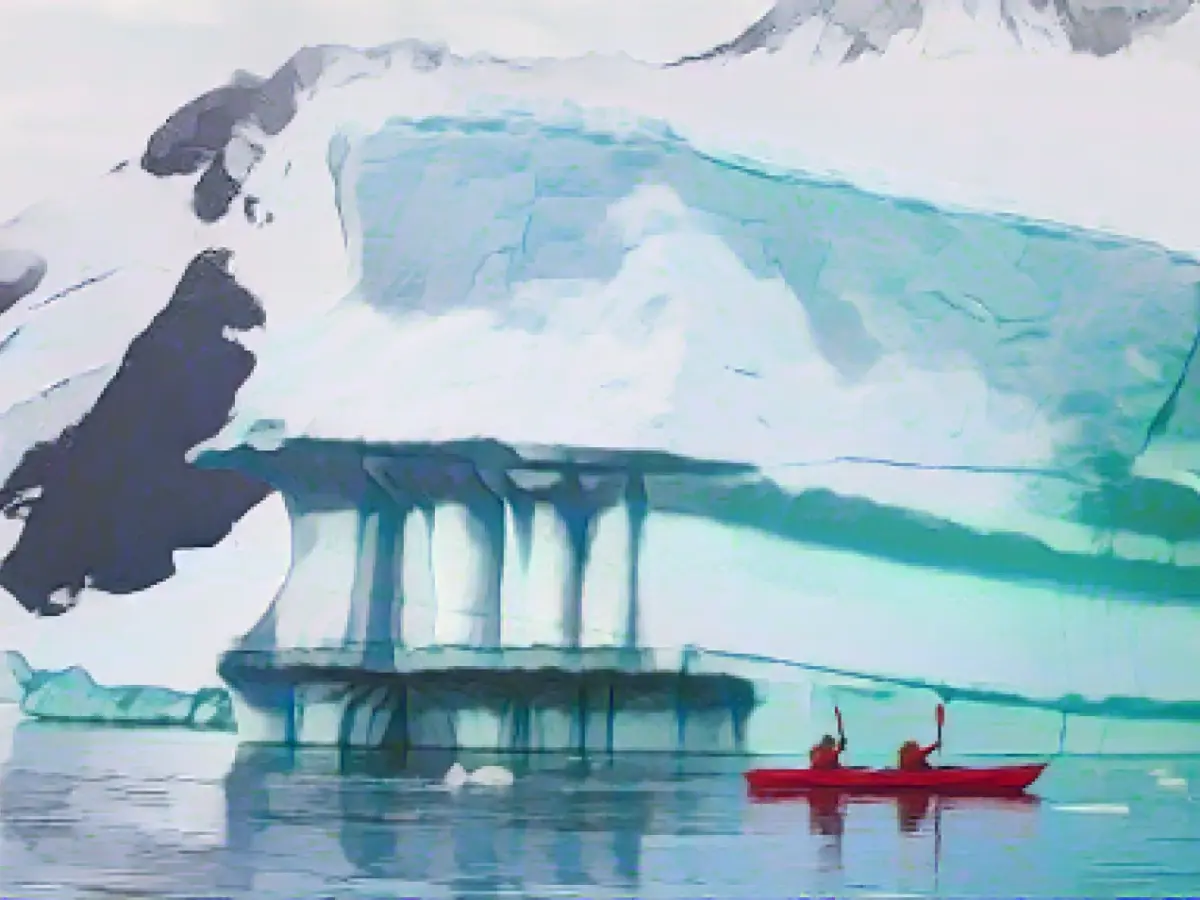Climate Change Warning: Five Potential Crisis Points Looming
Ever heard the tale of the frog in the pot? As the story goes, if you slowly heat a pot of water, a frog won't notice the change and won't leap out. That is, until the water becomes too hot. As a metaphor, the frog story represents humanity's current stance on climate change. The world is heating up slowly, and while we might not be feeling the brunt right now, the future is potentially dire if we don't act soon.
A recent report, titled "Global Tipping Points," points toward several critical turning points that could intensify the climate crisis, causing drastic changes in ecosystems and society at large. Here, we break down five potential crisis points that we're currently facing:
1. The Coral Reef Crisis
Coral reefs are the choice dinner spot for a variety of marine life. They serve as havens for aquatic biodiversity around the globe and bring in millions of tourists each year. Unfortunately, these essential ecosystems are under threat.
According to the experts at the Potsdam Institute for Climate Impact Research (PIK), a frog in the pot scenario may be playing out in our oceans right now. With global warming presently average at 1.2 degrees, coral reefs in tropical regions may tip over soon. A move to a global temperature increase of 1.5 degrees could threaten the survival of many of these reefs, if not outright destroy them entirely.
2. The Forest Crisis
Global warming isn't only damaging our oceans. It's affecting our forests, too.
At 1.5 degrees, large-scale forests, including northern coniferous forests, tropical mangroves, and seagrass meadows, could tip over and face permanent damage. From 2 degrees onwards, the Amazon rainforest will likely be on the brink of collapse, and the Antarctic ice could begin melting at an alarming rate.
3. The Sea Level Rise
If the Antarctic ice sheet were to collapse, we're looking at a possible 2-meter sea level rise within the century. This would put over 500 million people living in coastal areas in imminent danger of flooding exhibitions.
4. The Social Crisis
The report didn't hold back on the potential for social change and instability caused by climate change.
First off, the report suggests that climate change could trigger intense polarization and radicalization within societies. Worsening mental health issues and violent conflicts could also result from the worsening global climate.
On the flip side, climate-friendly technologies and behaviors could spread like wildfire after a certain tipping point, potentially leading to a reduction in greenhouse gas emissions.
5. The Positive Tipping Point
Climate-friendly initiatives have already reached their tipping point. Renewable energy sources, especially solar and wind, have become more affordable than traditional fossil fuels. With the right government incentives, the adoption of technologies like electric vehicles has exploded a country at a time.
Norway, for instance, has experienced a domino effect with their government's incentives for electric cars. Since the 90s, the country has gradually made electric vehicles more attractive by lowering taxes, offering subsidies, and building a robust charging infrastructure. The result? In 2016, the electric vehicles market took off, and the share of new electric cars sold in Norway reached a staggering 80%.
The concept of tipping points remains controversial, with researchers acknowledging that many questions remain unanswered, especially in regards to social tipping points and their interaction with climate change. However, there's no denying that the world is already in the middle of climate change. Extreme weather events, like droughts and flooding, are increasingly common today, even though the consequences we're witnessing are far from the catastrophic outcomes of potential tipping points.
In conversation with , Gerrit Lohmann, a researcher at Alfred Wegener Institute, emphasized that individuals, societies, and local governments need to take immediate action to prevent and curtail climate change. Communication around tipping points should be done with caution to avoid giving the impression that we are "safe" below certain thresholds. After all, these "safety lines" they represent may not be set in stone but rather warnings of what can happen if we don't take action now.
Study sources
- Global Tipping Points
- This will change in December
- German activists speak out in Dubai on suffering in Israel and the Gaza Strip
- Nuclear fusion - hype or solution to energy problems?
- Budget crisis fuels debate on citizen's income - Bas warns against populism
Enrichment Data
The "Global Tipping Points Report" conducted by over 200 researchers from 26 countries and co-sponsored by the "Bezos Earth Fund" identifies various components of the Earth's climate system vulnerable to tipping points. Below are some critical tipping points to consider:
- Arctic Sea Ice Tipping Point: Loss of summer Arctic sea ice sparks a chain reaction, causing other cryosphere tipping points, including northern permafrost and the Greenland ice sheet. Accelerated warming in the Arctic further exacerbates this issue.
- Greenland Ice Sheet Tipping Point: This ice sheet is highly sensitive to warming and could contribute significantly to sea-level rise if it collapses, albeit not within the near future.
- Antarctic Ice Sheet Tipping Points: The West Antarctic ice sheet might collapse due to marine ice sheet instability if warming reaches a certain threshold. The collapse of this ice sheet would not occur anywhere soon but could lead to several meters of sea-level rise over several centuries.
- Northern Permafrost Tipping Point: The northern permafrost is melting at an alarming rate, causing methane and carbon dioxide to be released into the atmosphere, further escalating climate change. This is a feedback loop, as increased greenhouse gas emissions cause further temperature increases in the Arctic.
- Warm-Water Coral Reef Tipping Points: Corals are vulnerable to changes in ocean parameters like temperatures, acidity, and sea-level rise. Once critical thresholds are exceeded, coral reefs will experience a phase shift, transforming into less productive and biologically diverse ecosystems, if not disappearing altogether.
Source:





